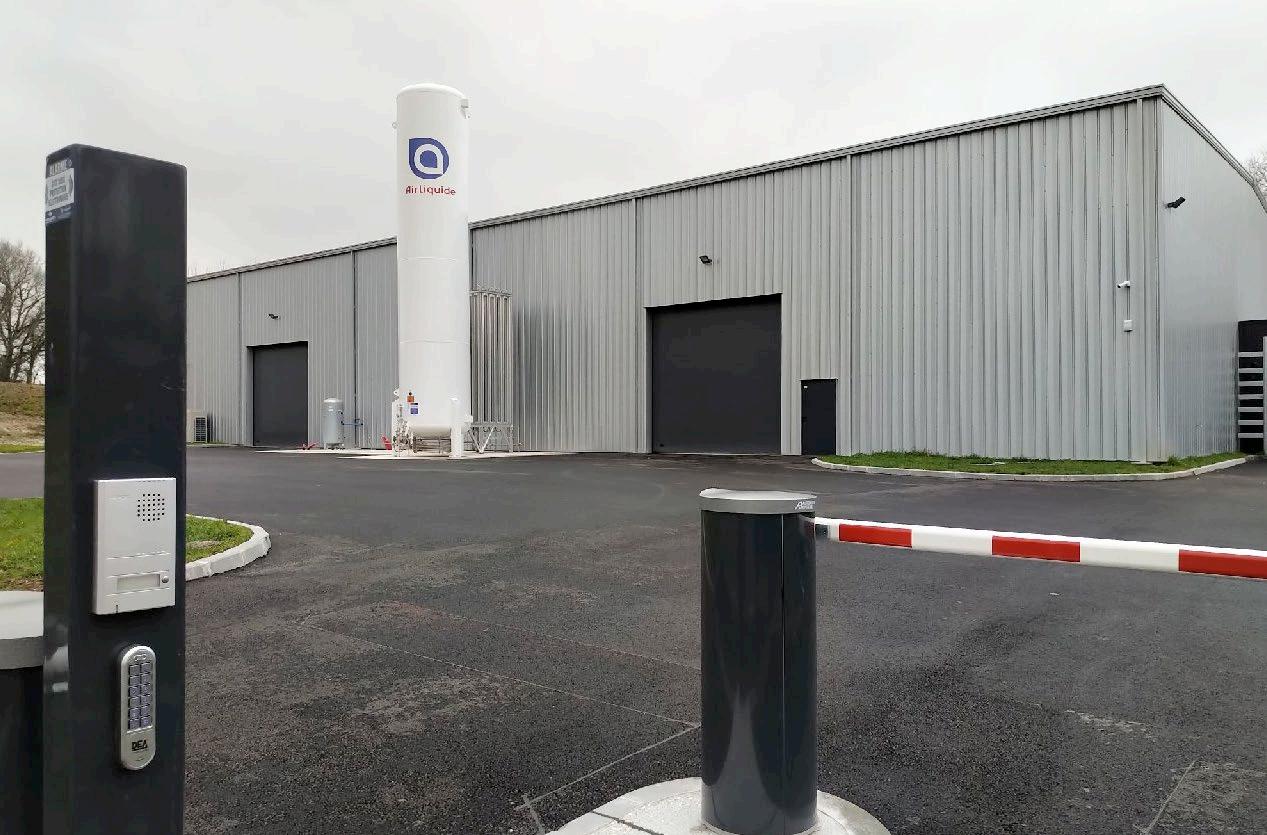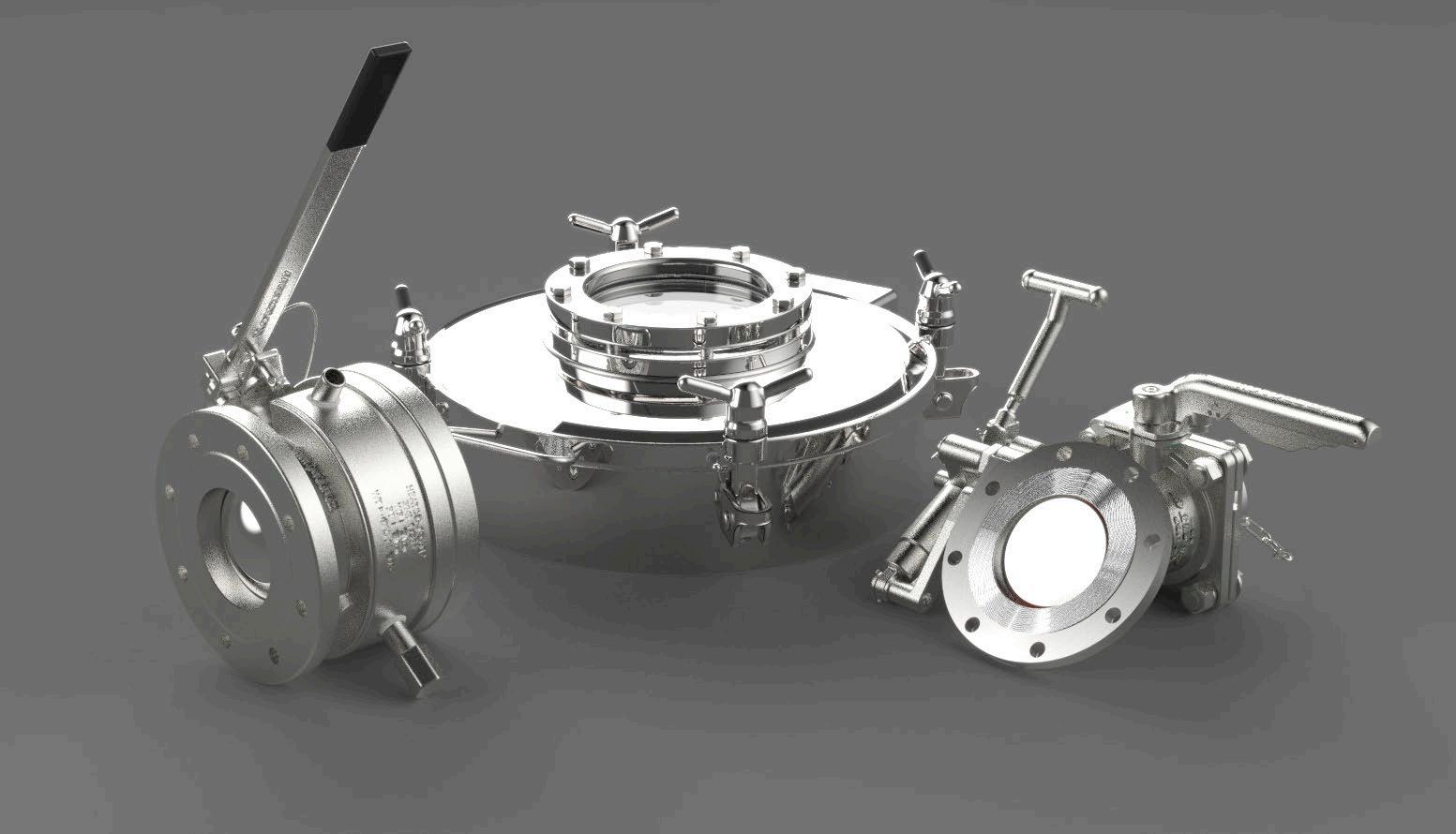
5 minute read
Perolo enjoys surge in orders
FIT FOR THE FUTURE
EQUIPMENT • PEROLO HAS EXPERIENCED A SURGE IN DEMAND THIS YEAR, MANAGING TO KEEP UP THROUGH INVESTMENT IN PEOPLE AND PLANT AND THE APPLICATION OF NEW IDEAS
SINCE THE END of 2020, leading tank valve and equipment manufacturer BIP Perolo has been enjoying a boom in demand for its products. “There has been a complete change in the market,” says Thierry Bourguignon, the company’s CEO. “We have been incredibly busy keeping up with demand – and it keeps growing.”
Bourguignon reports strong demand in particular for tank container equipment in Asia and for rail tank car equipment in Europe, with all sectors – the major operators and lessors as well as new entrants to the market – knocking on his door. Perolo has been increasingly successful in supplying the rail sector in the wider Europe, including Turkey, as well as growing demand for specialised valves and fittings for tank containers in Europe, especially for equipment suitable for handling highly corrosive products. This has been “technically challenging – but interesting,” Bourguignon says.
While any company would welcome the sort of demand growth that Perolo has experienced this year, it has also created challenges for the company, which is part of the BIP group, based in Blaye in south-west France. It has had to respond with additional production capacity but had to do so at a time when supply chains have been stressed, not only by the continuing effects of the Covid-19 pandemic and its associated restrictions but also by disruption particularly in ocean freight, with higher costs and longer lead times.
KEEP COMPETITIVE Moreover, Bourguignon reports that – perhaps not surprisingly – his customers are not just looking for more product but also short lead times and an attractive price, a combination he says is “very, very difficult” to achieve. Perolo, like others in the industry, has been challenged by rising steel prices since early 2021 and a general shortage of supply, making sourcing difficult. It is not an easy matter to switch to a new supplier, as Perolo’s tank equipment needs a high level of quality and performance from its raw materials. “We have had to qualify new sources of material,” Bourguignon says, “and this has called on the involvement of personnel in all parts of the
company.”
This shortage of raw materials has been matched by a shortage of people and, Bourguignon adds, it is hard to find people with the experience to be able to slot into the manufacturing process. Perolo does not have the luxury of time to bring new recruits up to the standard needed. Those people it already has are working overtime – Perolo’s Chinese plants have been working seven days a week for the past few months just to keep up with demand.
One thing that has paid off for Perolo is the investments in new technology it had put in place over the past two years. Despite the problems posed by the Covid pandemic, it took advantage of the lower workload experienced during 2020 to implement a number of changes that are now generating increased output.
Not least among these has been wider use of the BIP Laser system of metal cutting, which was first introduced ten years ago. A new factory has been opened in Blaye, offering more space, better and faster cutting, and greater efficiency in the production of valves, manlids and other equipment for tank containers, rail tank cars, road tankers and metal intermediate bulk containers (IBCs). This alone has helped increase output by almost 100 per cent, Bourguignon says, without the need for additional labour. “This helps the company stay competitive,” he adds. Similarly, investment has been made in Perolo’s manufacturing facilities in China, in additional machining and welding equipment and in modifying and improving its workshops, which has enabled a further increase in output and maintained its market position.
KEEP SAFE AT WORK The source of this year’s surge in demand is unclear but Bourguignon suspects it is partly a lot of pent-up demand after the drop in activity in 2020 as companies across the supply chain worked out how to cope during the Covid lockdowns. Perolo had similar issues, which again were a challenge for the organisation, but it was exposed to the problems early on in 2020 at its Chinese plants. “It took a few weeks to determine the hygiene measures that were needed,” Bourguignon notes. “Originally we expected them to be in place for a couple of months, but it is now becoming normal. We have learned to work with the threat and it is now a daily routine.” A few staff have had to isolate so the company needs to be flexible in its rostering.
As such, Covid restrictions are not an issue in the workplace – it looks much the same as ever except that employees are wearing masks. Where the problems come is in longer lead times for supplies, especially those being sourced from half a world away. Getting product out to distant customers is also an issue, though again Perolo has the advantage of having production in China, close to the Asian demand centres. However, Bourguignon says demand is growing around the world as more and more countries now have the same expectations for safety in the transport of dangerous goods – “and that’s a good thing,” he adds.
FOLLOW THE TRENDS Meanwhile, in Europe, there are some interesting and identifiable trends, not least in the rail sector where, Bourguignon suspects, there is growing demand from the chemical industry looking for more sustainable transport solutions. As a result, all operators and leasing companies are looking for efficient, safe and sustainable options. The sector as a whole is modernising, replacing older tank cars with new and more efficient rolling stock, which is underpinning a lot of demand for equipment, both for standard tank cars and those designed to handle aggressive chemicals and high- or low-temperature products.
“We always try to find solutions that will help safety and productivity or meet demand for new products and tank designs,” Bourguignon says. One example of that is the emerging market for composite tank containers, with shells manufactured of fibre-reinforced plastics (FRP). That means appurtenances cannot be welded to the tank shell, so Perolo has been working closely with manufacturers to come up with other answers. So far it is a tiny sector of the market but Bourguignon says such tanks are finding more takers and Perolo’s solution has been “quite successful”.
The company has to keep up with moves in the market such as this and, Bourguignon adds, will keep on investing, improving and reducing its reliance on third party suppliers. “We want to keep it in-house, under our control,” he explains. “We are looking to secure the future.” www.perolo.com
THE NEW BIP LASER PLANT (OPPOSITE) HAS BEEN
INSTRUMENTAL IN HELPING PEROLO INCREASE
PRODUCTION VOLUMES WHILE KEEPING UP WITH
ITS STRICT QUALITY DEMANDS










